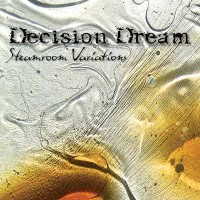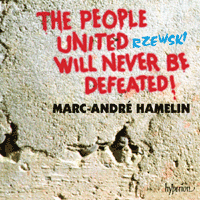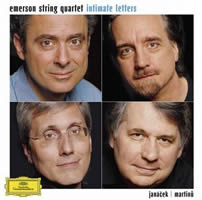Scardanelli’s Other April Motley
|
[La Folia’s man in the attic ends on an irascible note.] Signor Scardanelli [April 2013.] Not for your maiden aunt. As a tribute to onslaught, Decision Dream offers up a three-part endeavor entitled Steamroom Variations, so called for its having been recorded in an East London bath house direct to two tracks. “Direct to two tracks” operates for me as the promise to good sound. And so it goes here. Anthony Bianco, drums and cymbals; Magnus Alexanderson, electric guitar and loops; and Jair-Rohm Parker Wells, Fichter electric double-bass and loops offer visceral rewards especially to those with wide-range systems, emphasis on a killer low end. Red Toucan Records RT 9328, released in 2005, is one of a long list of free jazz and improvisational goodies by Montréal-based Les Productions musicales Cactus, http://www3.sympatico.ca/cactus.red. A recording to sip rather than gulp. Hyperion CDA67077, released in 1999, features Frederic Rzewski’s The People United Will Never Be Defeated! performed, along with Down by the Riverside and Winnsboro Cotton Mill Blues, by pianist Marc-André Hamelin. Hamelin’s virtuosity is well suited to 36 variations with themes and cadenza based on Sergio Ortega’s leftist anthem at the time of Chile’s Allende government. Rzewski’s treatment is bravura to the skies and, in Hamelin’s care, charming and amusing. Musically, the fillers are less compelling. Good sound. Likewise nicely recorded, albeit in a dryer setting, is Rzewski’s own reading on hatART CD 6066, released in 1990. Eschewing Hamelin’s lilt, the composer’s view is rather more matter-of-fact. New Albion NA 063 CD, released in 1994, with pianist Stephen Drury, includes, as a bonus track, a live 1975 performance by Quilapayun, the anthem’s original performers. And last, a beautiful and very well recorded performance by the Danish pianist Ole Kiilerich, Bridge 9392, released in 2012 – surely the easiest to locate and purchase. Of the many fine recordings of two deeply affecting string quartets – and there have been quite a few – these by the Emerson (Eugene Drucker, Philip Setzer, violins; Lawrence Dutton, viola; David Finckel, cello) stand among the best. Leoš Jánaček’s “The Kreutzer Sonata” of 1923 and so named after a tragic love story by Tolstoi, and “Intimate Letters” of 1928, a far more direct and soulful expression of the elderly composer’s infatuation with a younger married woman, bare their emotions with extraordinary pungency. Separating them is Three Madrigals for Violin and Viola by fellow Czech Bohuslav Martinů (1890-1959), whose typically bracing signature operates as quite the ideal counterweight to Jánaček’s luminous pathos. Beautifully recorded by Da-Hong Seetoo in the LeFrak Concert Hall of Queens College (NY). Deutsche Grammophon B0012770-02, released in 2009. Da-Hong Seetoo also recorded Béla Bartók’s String Quartets 1, 3 and 5, with the Euclid Quartet (Jameson Cooper, Jacob Murphy, violins; Luis Enrique Vargas, viola; Si-Yan Darren Li, cello). With the second disc en route, I feel safe in predicting a superior production. Artek AR 0060-2 certainly is. That the Euclids are new to me is my fault entirely. These are accomplished, well seasoned players who satisfy clear down to the bone. I remarked long ago in another context that great recordings intensify recognition of superior performances. Conversely, mediocre music or good music played with indifference isn’t much helped by anything. With respect to the former, a lot of audiophiles seem not to understand. Recordings are more than fuel for one’s fabulous hardware.
[More Signor Scardanelli]
[Previous Article:
Three Tiensuus]
[Next Article:
Neuburger’s live Barraqué Sonate]
|



